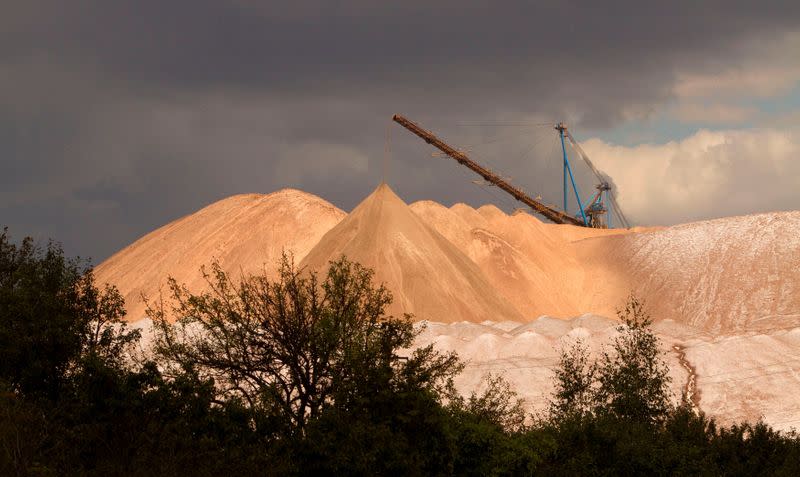Belarus stops some potash output amid protests - TASS

By Andrei Makhovsky
MINSK (Reuters) - Some fertiliser production has stopped at Belarusian potash miner Belaruskali after a number of its workers joined protests over the country's disputed election, TASS news agency cited the miner's labour union as saying on Monday.
The scale of the industrial action among state-owned Belaruskali's 16,000-strong workforce across six mines was unclear. The company is the world's largest producer of potash, a key source of dollar revenue for Belarus, and is a major supplier of fertiliser to China and India.
Belaruskali was not available for comment when called by Reuters.
Its trading arm - the Belarus Potash Company (BPC) - said earlier on Monday it would do its best to honour contracts with customers.
Industrial action in Belarus began last week after allegations of election rigging and police brutality.
Some of the Belaruskali workers protesting near the company's headquarters in Soligorosk, 135 km (84 miles) south of Minsk, are calling for new elections, the sacking of Belarus officials involved in a violent crackdown and for the release from jail of people they say are political prisoners.
Belarusian leader Alexander Lukashenko, who declared a landslide election win in the disputed election, has said he will not hold a new vote.
Belaruskali produces 1 million tonnes of potash a month, 18% of global monthly consumption, and has limited storage capacity, analysts at VTB Capital said in a note on Monday.
The global potash market is currently tight as large deliveries are planned under recently signed contracts with China and India, they said.
Other global potash producers, including ICL <ICL.TA>, Mosaic <MOS.N> and K+S <SDFGn.DE>, could benefit if supplies from Belarus dry up for some time, VTB added.
In a statement Monday, BPC told clients: "We are fully aware of the importance of our commitments to you, as well as a high degree of responsibility, and we ask for your understanding.
"We hope for a quick resolution of this situation," it added, posting a banner saying "Pray for Belarus".
(Reporting by Andrei Makhovsky; Writing by Tom Balmforth and Polina Devitt; Editing by David Goodman and David Holmes)


